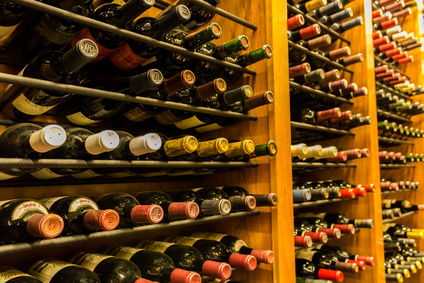Let’s have independent wine shops in Quebec

To privatize or not to privatize? That is the question that resurfaces periodically with regard to the SAQ amid criticism of the prices of its products, its management or its efficiency.
Another, less frequently heard but nonetheless important criticism is the lack of space the public monopoly leaves for small entrepreneurs. This latter concern should guide the government in its current reflections on the alcohol market, and could indeed lead to a third way between the status quo and full privatization: liberalization.
Elsewhere in Canada, various reforms have been implemented to liberalize alcohol markets, albeit always incompletely. In Alberta, for example, Alberta Liquor Control Board outlets were all either sold or shut down in the early 1990s. However, private retailers must pay a markup to the government, which still controls the wholesale market. In British Columbia, state-operated stores coexist with private retailers. Supply, though, remains a public monopoly.
In contrast, free market situations prevail in most European countries, with retailers importing, distributing and selling bottles in competition with one another without having to go through the state. In Belgium, for instance, a country that does not produce wine, hundreds of wine shops compete for consumers’ business. The selection of bottles is nearly three times what it is here, and prices are substantially lower.
In Quebec, a first stage of liberalization should be to allow small retailers to sell any kind of wine freely. These wine shops could import their wines themselves and sell them in-store without going through the Société des alcools du Québec or paying the associated markup.
These new players could be expected to avoid competing with the SAQ on certain products for which it has an advantage — thanks to its brand name or the size of its retail spaces — and specialize in niche products to start. We could also assume that these small wine shops would try to secure market share by selling certain key products for less than the SAQ sells them, thereby putting downward pressure on prices.
Consumers would benefit, since instead of having a single wine buyer (the SAQ) choosing what will be sold across the province, there would be several hundred different buyers in Quebec, giving free rein to their preferences and responding to their customers’ demand for new products.
The arrival of independent wine shops would make the local economy more dynamic and create jobs, especially in rural regions, where specialized artisanal wine producers already exist.
At present, convenience stores and grocery stores can only sell wines bottled in Quebec, which greatly reduces the selection of wines offered to consumers, their quality, and the information available about those wines. In liberalizing, the government should also authorize food retailers to sell alcohol without restriction, as French and American grocery stores do, for instance. Access to products would be improved, notably for those living in rural regions.
The government’s monopoly over the sale of alcohol was put in place in the days of Prohibition, and no longer serves any rational purpose. It does not benefit consumers, and it stifles entrepreneurship and innovation in this market. Nor is it justified because of its fiscal contribution, since the government has other means of raising revenue.
Specialized retailers and grocery stores should be allowed to sell any kind of wine freely, in competition with the SAQ, which would have complete latitude to pursue its retail activities. In addition to being politically realistic, given that a large majority of Quebecers are in favour, according to our recent poll, such a reform would give Quebec entrepreneurs a chance to succeed in this market, all while increasing the available selection of products, and consumers’ access to them.
Germain Belzile and Mathieu Bédard are, respectively, senior associate researcher and economist at the Montreal Economic Institute. They are the authors of "How to Liberalize the Alcohol Market in Quebec" and the views reflected in this op-ed are their own.
____________________
Read more articles on the themes of "Liberalization of Markets" and "Regulations."

